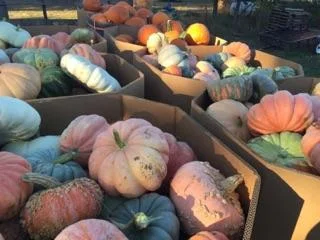Recently, we had a conversation with a farmer with multiple enterprises (livestock, produce, other products) and with multiple marketing channels (local markets, wholesale, online), resulting in a whole lot of pieces to a diversified farming puzzle. We realized during that chat that the farm arrived at many of those enterprises and marketing channels not by design, but by default, meaning that the work the farm was doing really did not match the goals and the plan that the farmer had for the farm.
You can easily “fall into” a marketing channel or a product that you did not plan because you want to take advantage of every opportunity you can in an effort to make your farming business work. Unfortunately, all too often an “opportunity” may not be as good as it first appears, and you end up with lots of things your business is doing that really do not match where you want the business to go. And you may be doing a lot of things that actually cost the business more money than they make.
How do you avoid the trap of farming by default, rather by design?
1) Take a hard look at what you are doing on a regular basis, but certainly no less than once a year. In a perfect world, after the season ends, recap your thoughts and feelings on paper, while it is still fresh. When planning for the next year, revisit your document and decide the course of action for the new year. Often winter is the season we have these kinds of conversations either because there is less to do outside or because tax season forces farms to own up to their numbers.
2) Take a fresh look at your goals for your life and your farm. If you constantly complain about a particular marketing channel or product, there is probably a reason and you need to examine whether it fits with where you want your time and your money spent.
3) Be willing to ask, “Why are we doing this?” Just because it is something you have done for a long time or that your parents did does not mean you have to keep doing it. Making a change from how you have always done it may not always be easy due to crop seasons or livestock breeding cycles, but better to start the process than to keep doing something that does not fit where you want to go.
Oftentimes, it is easier to talk through these decisions with someone who has no stake in the matter who can ask the right questions and help with the analysis. Feel free to call the Kentucky Center for Agriculture and Rural Development staff at 859-550-3972 or email us at kcard@kcard.info and one of our business development staff would be happy to help.

